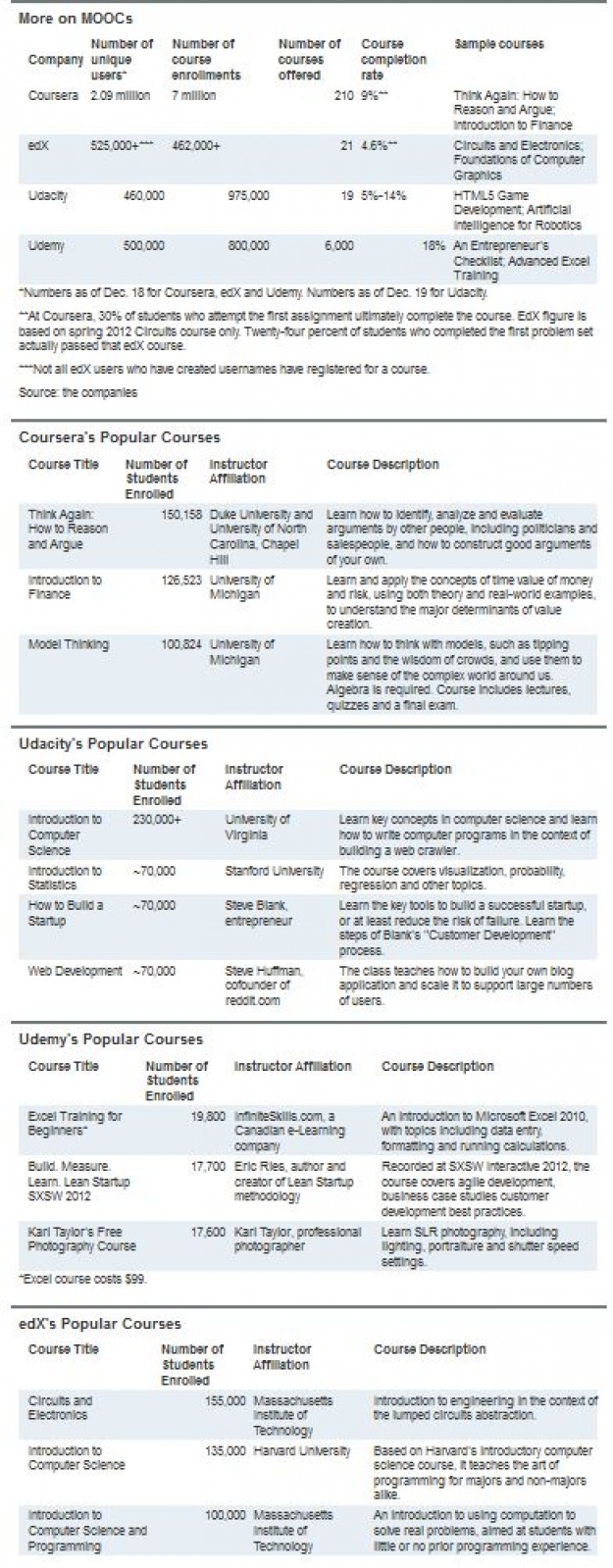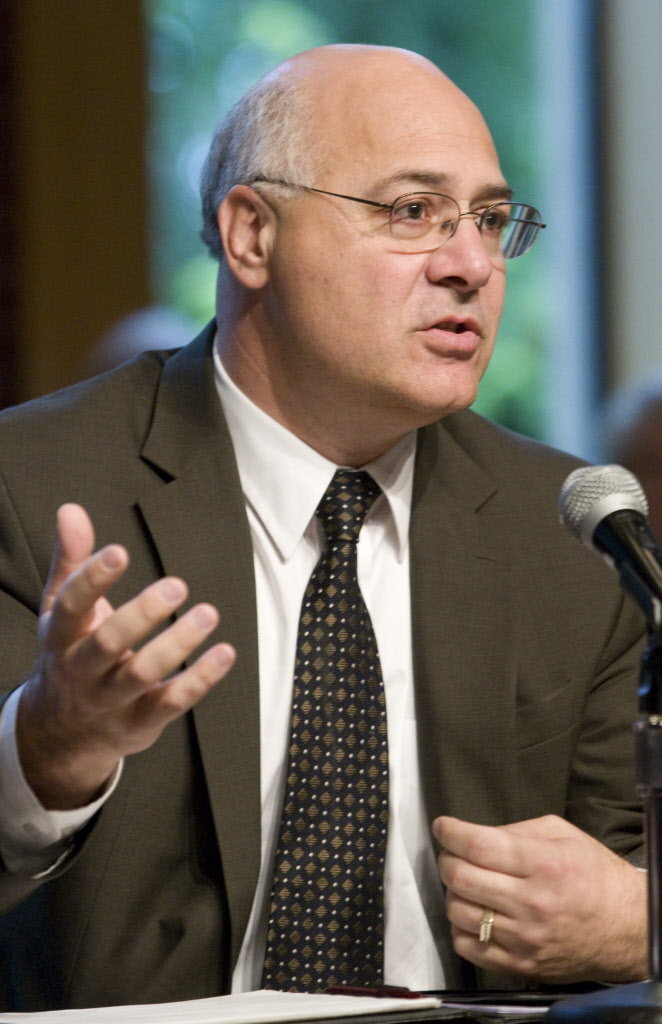
Professor Jeremy Adelman has taught a world-history class at Princeton University for several years, but as he led about 60 students through 700 years of history on the ivy-covered campus this past fall, one thing was different: Another 89,000 students tuned into his lectures free of charge via Coursera, an online platform.
read more >
As millions flirt with free college-level courses online, educators are still debating their academic merits.
read more >
At the University of Minnesota, the number of employees with “human resources” or “personnel” in their job titles has grown from 180 to 272 since the 2004-05 academic year. Since 2006, the university has spent $10 million on consultants for a vast new housing development that is decades from completion. It employs 139 people for marketing, promotions and communications. Some 81 administrators make $200,000 per year or more.
read more >
Oregon and Ohio and looking very similar..
read more >
After two years of preparation, 90 percent of teachers—and 98 percent of those voting—voted to authorize a strike.
read more >
"The balance between people who are actually in the trenches and those who are overseeing that work has gotten grossly out of line," says Robert E. Martin, Emeritus Boles Professor of Economics at Centre College and an author of the study. "That imbalance is one of the primary reasons for why costs grew so out of control over the last three decades."
read more >
Lectures remain the dominant form of instruction, the survey found, but the results also show increases in the number of professors who use discussions and other alternatives, like cooperative-learning projects, in their classes.
read more >
In 2009 Human Resources changed the PSU policy on access to faculty unearned sick leave advance bank to require faculty members who voluntarily purchased Short term disability (STD) to exhaust that disability, and then exhaust Long term Disability (LTD), before being eligible to access the statutory Unearned Sick Leave advance bank. They did not notify PSU-AAUP of the policy change as required by law and the CBA, and we only learned of it when a very sick faculty member was harmed by the policy in 2011.
read more >
Senate Bill 242 created an opportunity for OUS to look at alternatives to PEBB. David Hansen, SBA and Phil Lesch, PSU-AAUP Executive Director were voting members of the committee that worked for over one year with health benefits consultant Gallagher Benefit Services to evaluate PEBB and our benefit programs. The committee's final draft report recommends sweeping changes to the purchase and management of health care benefits for the 13,500 OUS employees in the 2012 $206,000,000 program.
read more >

As commissioner, Avakian oversees a department that enforces civil rights and workplace laws and teaches employers how to comply with them. The position also provides a minor bully pulpit and the opportunity to pursue targeted legislation. Avakian, to his credit, has pushed successfully to boost funding for high school vocational programs and intends to encourage lawmakers to contribute further during the 2013 session.
read more >
A campaign to ensure that all workers in Portland earn paid sick time – inspired by similar campaigns in San Francisco and Seattle – is just getting its footing, with advocates still discussing how they plan to proceed.
Lisa Frack, communications director for Family Forward Oregon, a group pushing for more family-friendly policies in the workplace, said her group is reaching out to small businesses, unions and other groups to hammer out a strategy as well as raise awareness about the issue.
read more >
Read the article and weep about what those colleges have for faculty that we do not.
read more >
A Romney presidency would pose an obvious hardship for the country’s public colleges and universities. Romney and Ryan, austerity candidates, make no secret of their desire for further cuts in public spending (with no exemption for higher education). But Romney’s now-famous “47-percent comment” highlights the danger ahead for the private revenues that public-college leaders have counted on to replace shrinking public support.
read more >
See our Op-Ed piece at Oregon-live.com!
read more >
We just learned that a faculty member's ability to appeal the outcome of the student conduct code hearing will not be impinged by a shorter appeal deadline. At PSU-AAUP's request, PSU has agreed to retract their proposal to reduce the appeal deadline for findings of the student conduct code hearing from 10 days to 5 days. The appeal timeline will remain 10 days.
read more >
Please click here for the Spring/Summer 2012 Newsletter
read more >
NEWSLETTER
June 01, 2011 / PSU-AAUP
Please click here for the Summer 2011 Newsletter
read more >
Please click here for the Winter 2011 Newsletter
read more >
please follow the link to our older entries
read more >
for Archives please click through to the link
read more >


